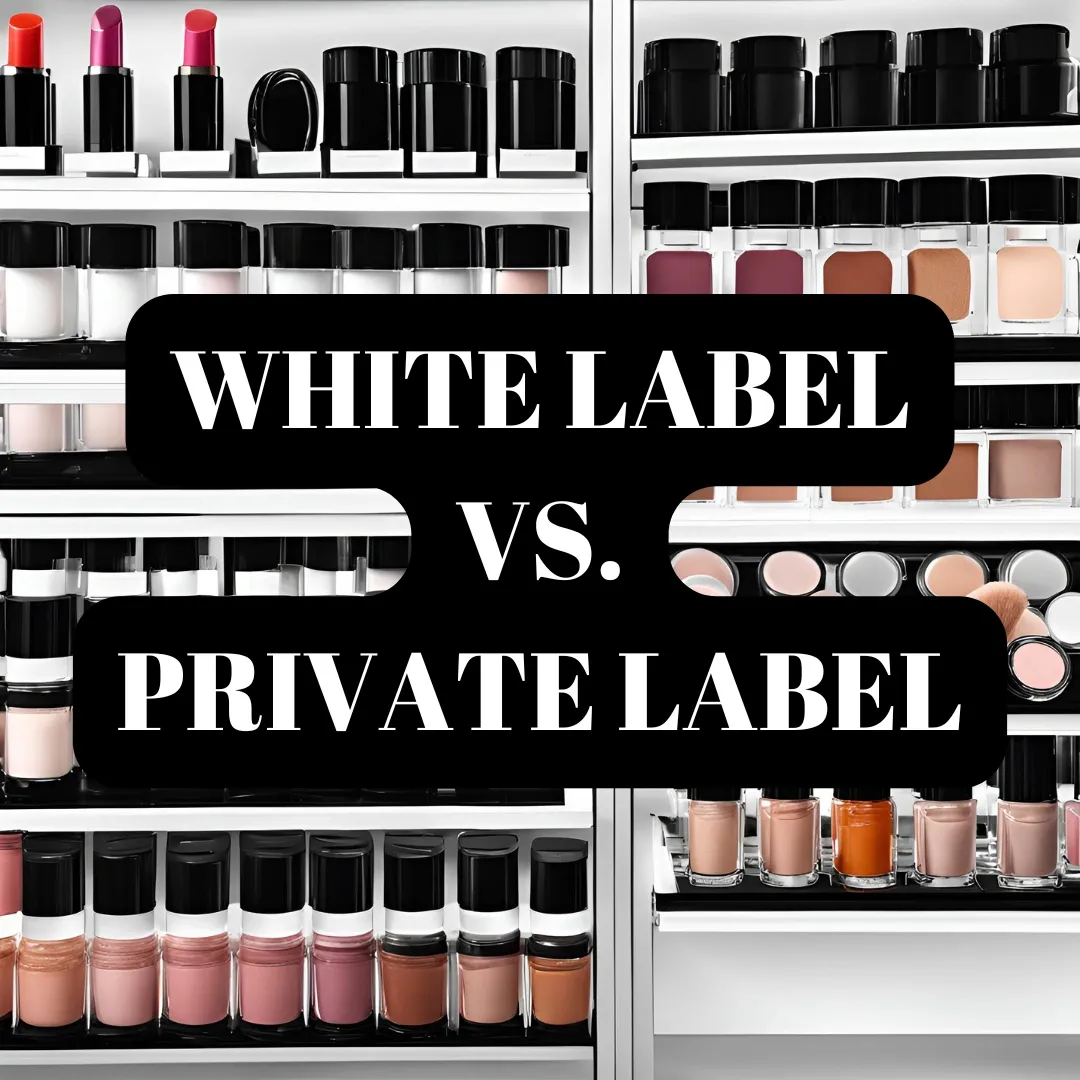In the makeup industry, terms like “white label” and “private label” are often used, but many people don’t fully grasp their meanings. These terms are not interchangeable, and understanding the distinction is crucial, whether you’re launching your own brand or just curious about how products are made. This blog post will explain the key differences between white label and private label products and why they matter.
White label products are pre-formulated items provided by a manufacturer that any brand can purchase and rebrand as their own. This means the formula isn’t unique to a brand—it’s available for other brands to use as well. While the core formula remains the same, some manufacturers might offer slight customization options, such as adjusting the color, fragrance, or packaging, to better fit a brand’s aesthetic.
Examples of White Label Products:
◾Purchasing products from a platform like Alibaba and adding a logo to them
◾Buying a pre-made formula from a manufacturer and packaging it with different branding
◾Choosing a pre-made formula but opting for custom packaging to distinguish the product
Private label involves working with a manufacturer to develop a custom formula that is exclusive. This formula is unique and cannot be sold to other brands. Whether the customization is minor (like tweaking an existing formula) or significant (creating something entirely new), the result is a product that only this brand offers.
Examples of Private Label Products:
◾Collaborating with a manufacturer to create a formula specifically for a brand and packaging it with a custom logo
◾Using custom packaging alongside an exclusive formula to create a unique product experience
◾Regardless of the level of customization, the formula is brand-specific, making it distinctive in the market.
Big Brands vs. Indie Brands:
Many big brands you see in stores like Sephora, Ulta, and drugstores use private label products. These brands don’t typically own the labs where their products are made but work with contract manufacturers to develop formulas that are exclusive to them.
Indie brands, on the other hand, often start with white label products due to the lower cost and quicker time-to-market. As these brands grow and gain more resources, they may move towards private label products, allowing them to offer something unique that stands out from the competition.
The Importance of Lab Ownership:
It is essential to note that brands with their own labs and in-house cosmetic chemists can create truly bespoke products tailored specifically towards their customers. They can even institute changes in formulations much quicker as well. However, even without owning a lab, a brand can still create products by working closely with a manufacturer.
Understanding the difference between white label and private label products is essential if you’re considering starting a makeup brand or want to be more informed about the beauty products you purchase. White label products provide a faster, often more cost-effective way to bring products to market, while private label products allow you to create something truly unique to your brand.
I hope this post has clarified the difference between white label and private label makeup products. Whether you’re just starting out or expanding your knowledge, this information is crucial for making informed decisions in the beauty industry.
Interested in reading more? Take a look at some of the journal references and magazine articles I have listed below.
Journal References
1. Vyas, N., & Rathore, P. (2019). Formulation development and quality control of cosmetic products. Journal of Cosmetic Science, 70(5), 263-273.
2. Dondi, M. (2018). Innovation in cosmetic formulation: The role of cosmetic chemists. International Journal of Cosmetic Science, 40(2), 101-112.
3. Palumbo, A., & Percoco, G. (2020). Trends in the development and marketing of private label cosmetics. Cosmetics, 7(4), 87.
4. Lupo, M. P., & Cole, R. P. (2017). Customization and differentiation in the cosmetic industry: The science behind private labeling. Journal of Applied Cosmetology, 35(3), 231-245.
Magazine Articles
1. Forbes – The Business of Private Labeling: A Key Strategy for Entrepreneurs
2. Harper’s Bazaar – What It Really Means When a Brand Is ‘Private Label’
4. Beauty Independent – Understanding The Difference Between White Label And Private Label Products
5. Business Insider – Why Private Label Brands Are Thriving Amid The Retail Apocalypse



